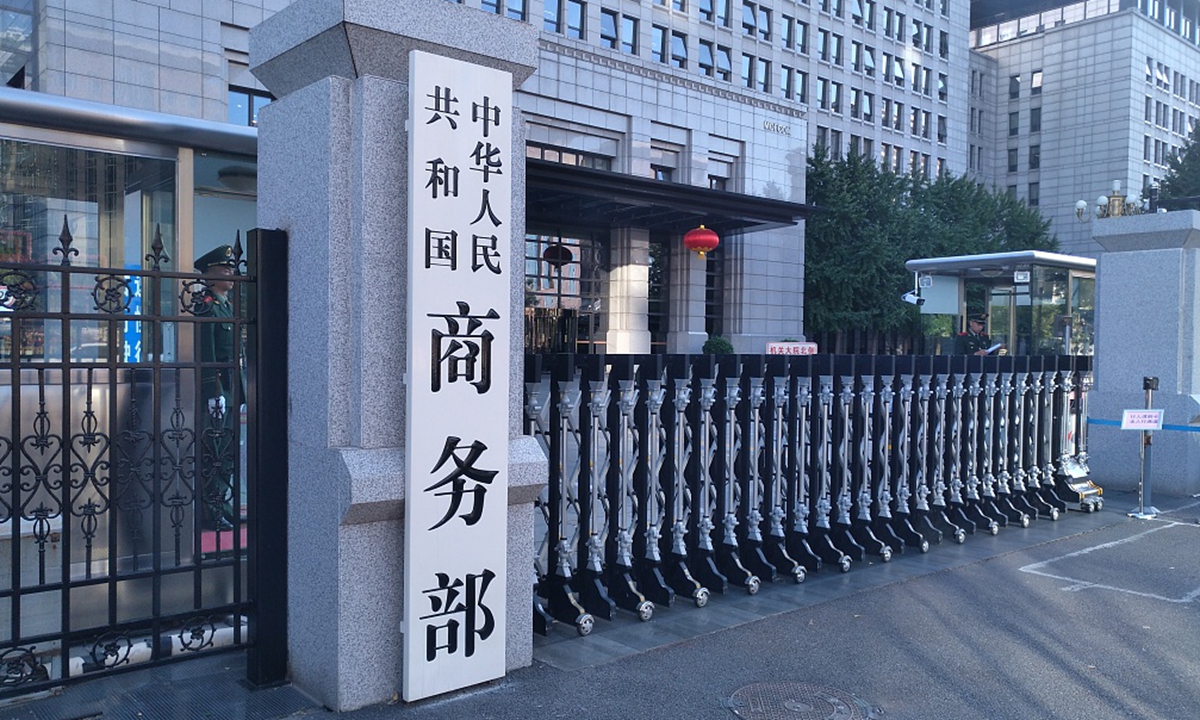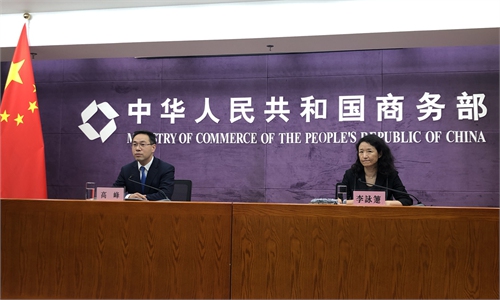China-EU BIT aims for institutional openness with market access, fair competition commitment: MOFCOM

File Photo: VCG
The China-EU bilateral investment treaty (BIT) is aimed at institutional openness, with its market access commitment to allow for more investment opportunities for businesses from both sides, an official with the Ministry of Commerce (MOFCOM) said on Wednesday, shedding light on the imminent deal after Chinese and EU leaders declared earlier in the day the completion of BIT talks as scheduled.
Fair competition rules are also part of the treaty to provide a better business environment for Chinese and European businesses, Li Yongjie, deputy director general of the Treaty and Law Department of MOFCOM, told a media briefing.
The BIT adopts pre-establishment national treatment plus a negative list for foreign investment when it comes to market access, and China for the first time pledges to open all sectors, including the services and non-services industries on a negative list basis, according to Li.
The EU, for its part, commits to give China a high level of market access in the treaty and the two sides’ commitments concerning market access are not only limited to the pre-establishment national treatment and negative list, she went on to say, adding that there are special clauses in the treaty to grant investment-related foreign exchanges transfer.
The two sides vowed to not implement restraints on the number of companies, their production, business turnover, directors and senior executives, local research and development, exports and the location of headquarters in most economic fields, the ministry revealed at the late-night briefing.
China has long attached importance to the issues of sustainable development including environmental protection and labor rights protection, and it has taken note of the trend to include economic and trade-related environmental protection and labor agendas into international dealmaking, according to MOFCOM.
The China-EU BIT has specific rules on investment-related environment and labor issues to well handle the relationship between attracting investment and protecting the environment and labor rights.
The MOFCOM official revealed that consensus has been reached by the two sides on rules for enterprises, including state-owned enterprises, transparency of subsidies and financial regulations.
With the BIT, China will open the financial sector further. It will also open more in the services and manufacturing sectors including hospitals and automobiles, Li told reporters, noting that the treaty will offer reciprocal benefits that will bring more opportunities for European firms.
China would like to take the opportunity at the conclusion of BIT negotiations to further develop cooperation on advanced manufacturing, services and green industries to push bilateral ties with the EU to new heights, she said.
As for when the BIT agreement will take effect, the ministry said both sides will complete technical work such as legal review and translation. “We will promote the signing of the BIT as soon as possible. After the signing, the two parties will go through internal procedures before it takes effect,” Li disclosed.
When asked to comment on the US government’s reaction to the hard-won China-EU pact, MOFCOM spokesperson Gao Feng said at the briefing that China is willing to conduct cooperation with all parties including the EU and the US to harvest win-win and mutual benefits, while hoping the US can meet China half way and make joint efforts.
Global Times

